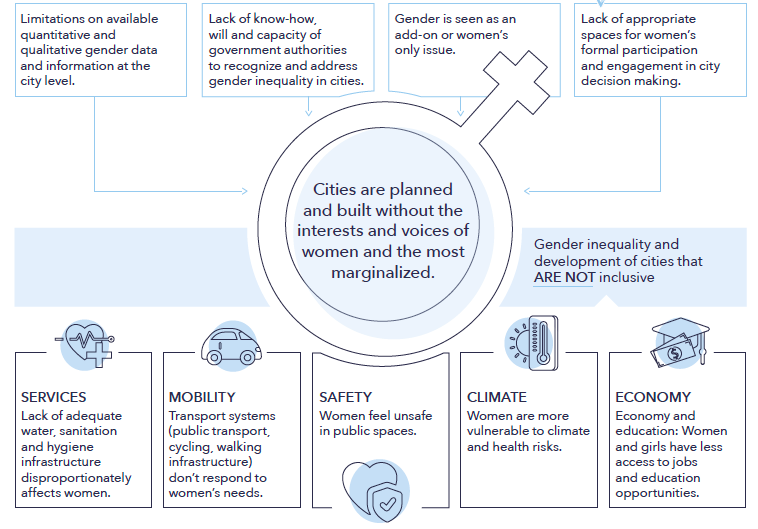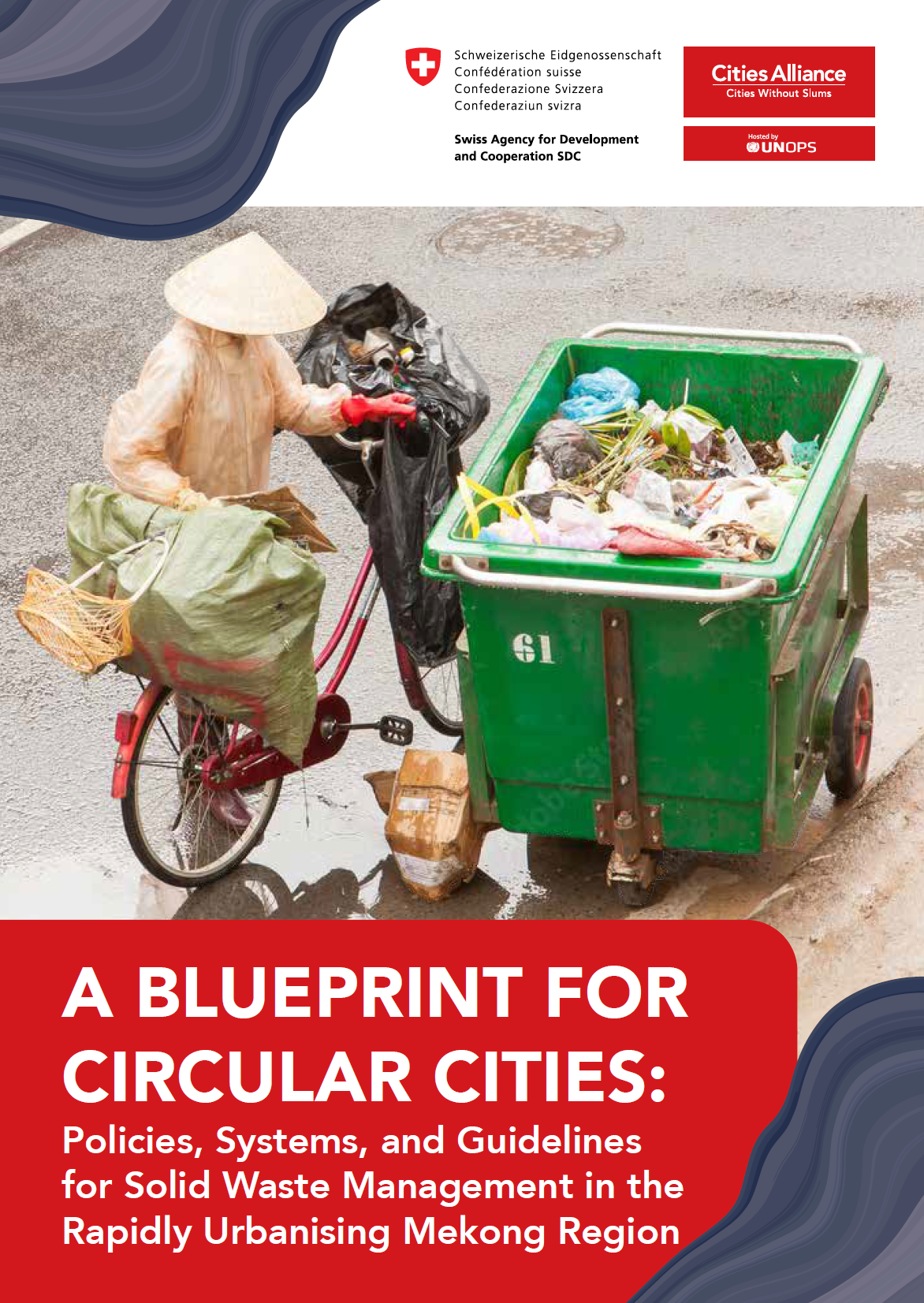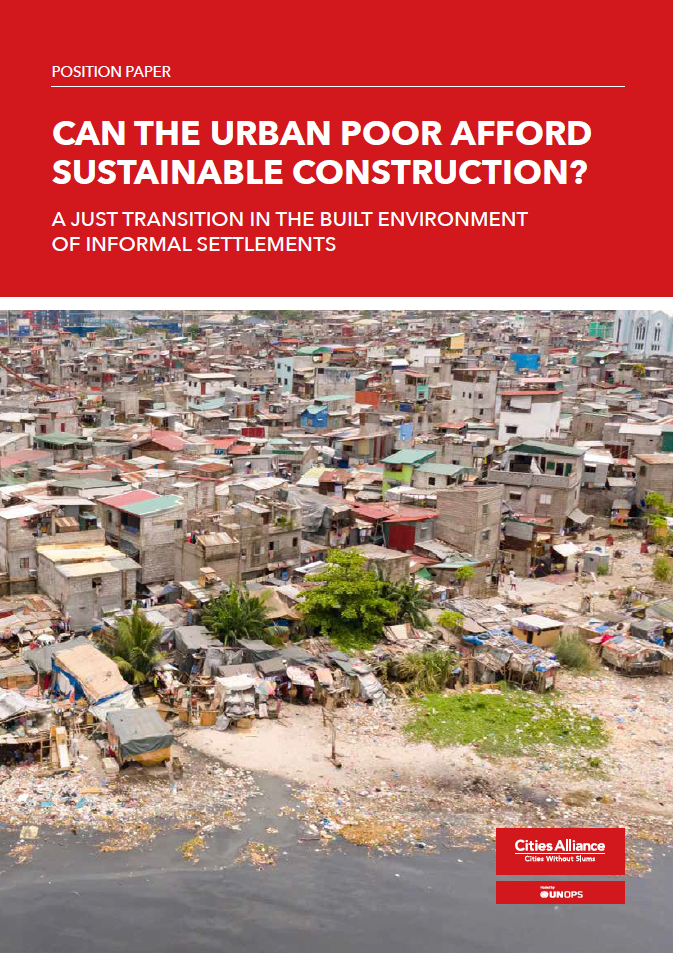- Who We Are
- How We Work
- Regional / Country Initiatives
- Legacy
- Core Themes
- Working Groups
- Portfolio & Results
- Newsroom
- Resources
Gender Equality Action Plan 2022-2023

The Gender Equality Action Plan is Cities Alliance's guiding document for the years 2022 and 2023 to ensure gender equality in all our work, internally and externally as well as locally and globally.
The Cities Alliance Gender Equality Action Plan (GAP) 2022–2023 provides guidance on how Cities Alliance will guarantee that gender equality and women's empowerment are reflected in all its programmes and processes, through its collaboration with members as well as its global and in-country operations.
The GAP builds on earlier policies and strategies of Cities Alliance as well as on an internal review process that identified multiple lessons learned and recommended actions.
Why do we need a Gender Action Plan?
Globally, most cities are planned and built without the interests and voices of women and the most marginalised groups. Various factors individually and cumulatively increase gender inequalities and prevent inclusive city development so that women continue to be discriminated in multiple sectors.

How do we address these gender inequalities in cities?
Cities Alliance is committed to addressing gender inequalities in city development and to fostering the capacities of local governments, women's organisations and community-based initiatives to effectively engage women in urban planning, through three key objectives:
- Contribute systematically and comprehensively to promoting gender equality and women's empowerment in all thematic areas
- Develop a premier global partnership working on women's engagement in cities
- Raise awareness on gender equality and develop capacity and resources for inclusive city planning and governance at local levels
To achieve these objectives, Cities Alliance will continue to fully integrate gender-equality considerations into all programme strategies. This includes mainstreaming gender across all activities (by increasing advocacy and engaging key members and partners and by effectively monitoring internal activities and providing cross-support between programmes), and raising awareness, building capacities, and developing partnerships for gender-equal cities through further developing in-country gender-specific programmes.

Find more information here and learn about some of our previous projects on gender-mainstreaming in urban governance.


